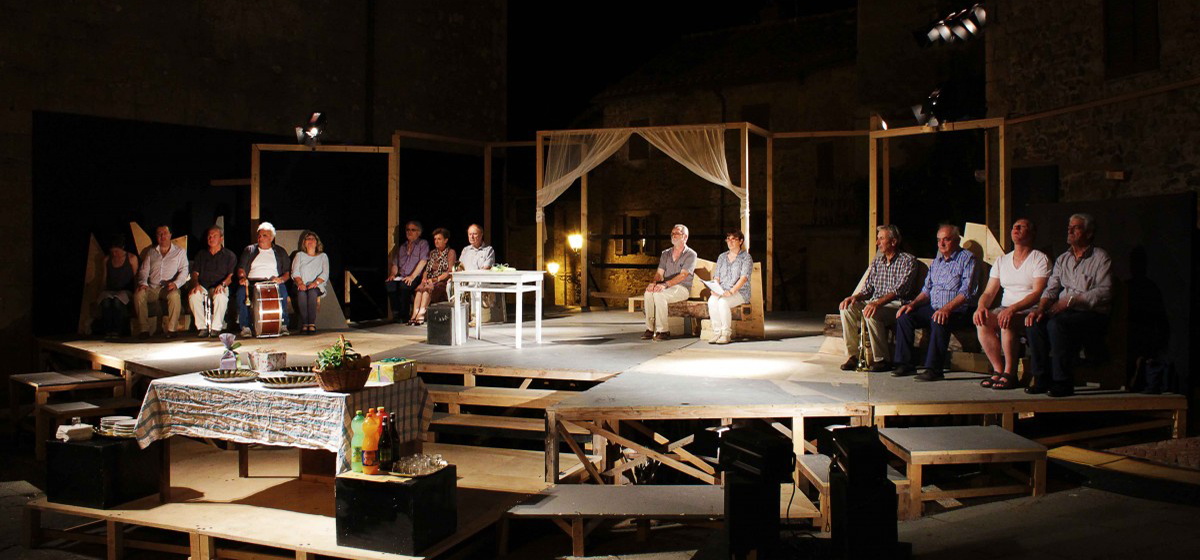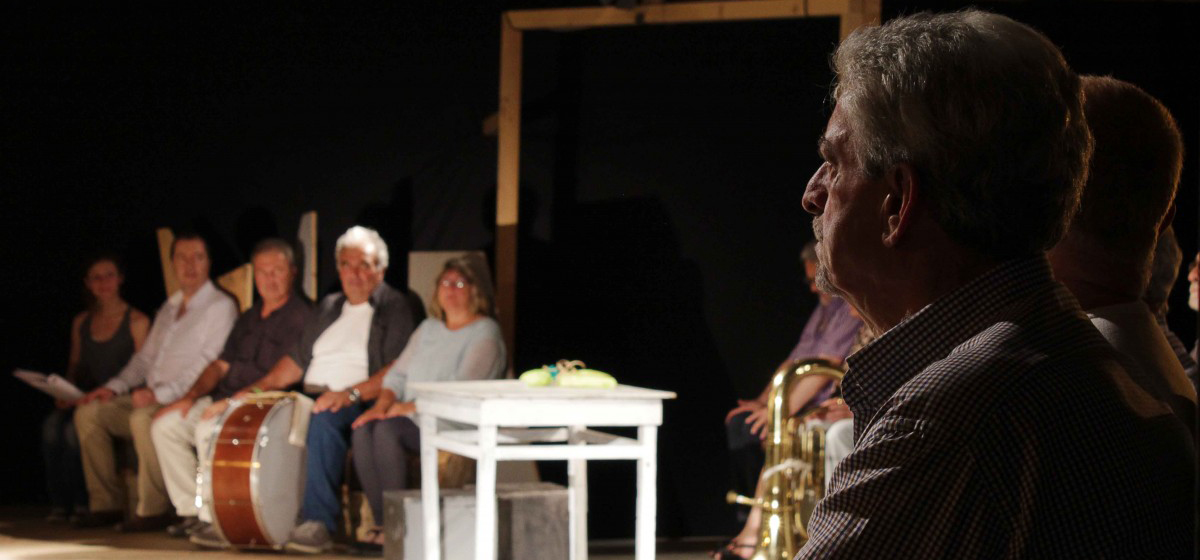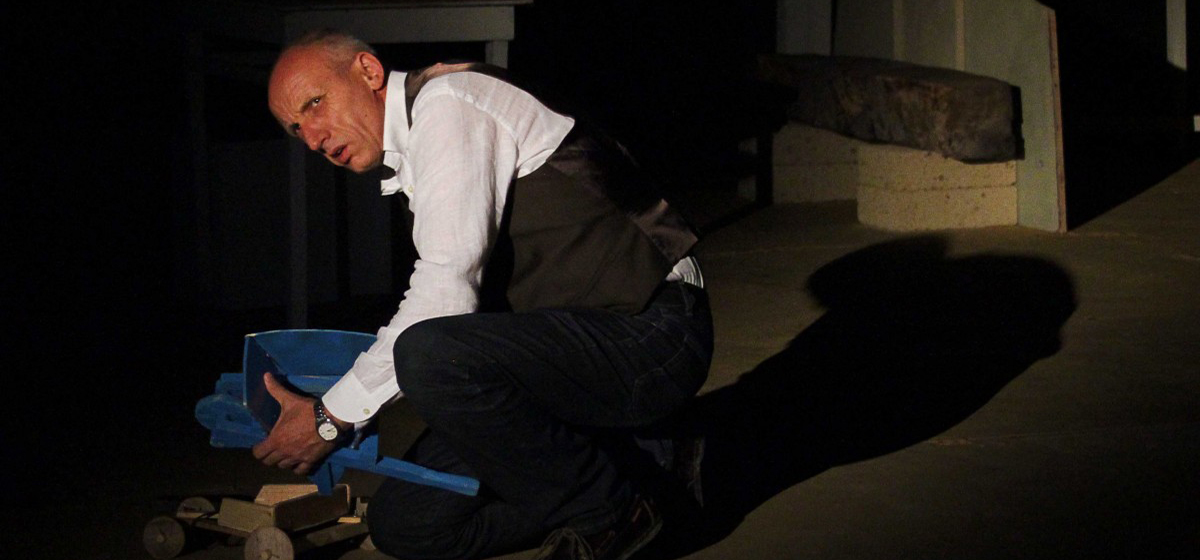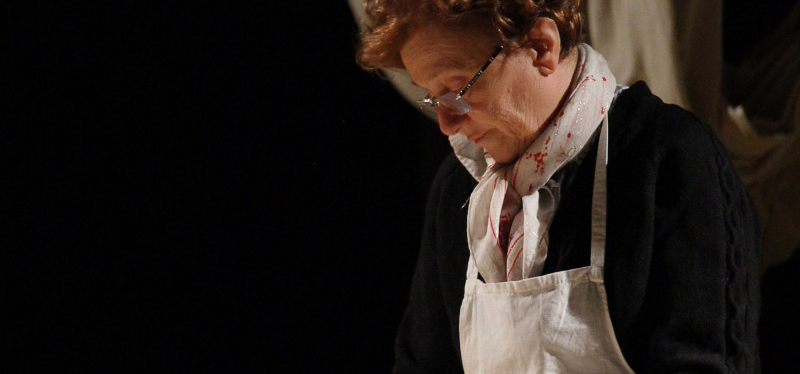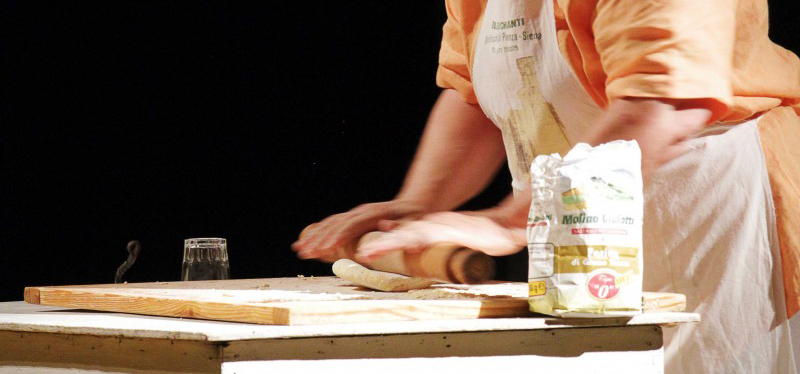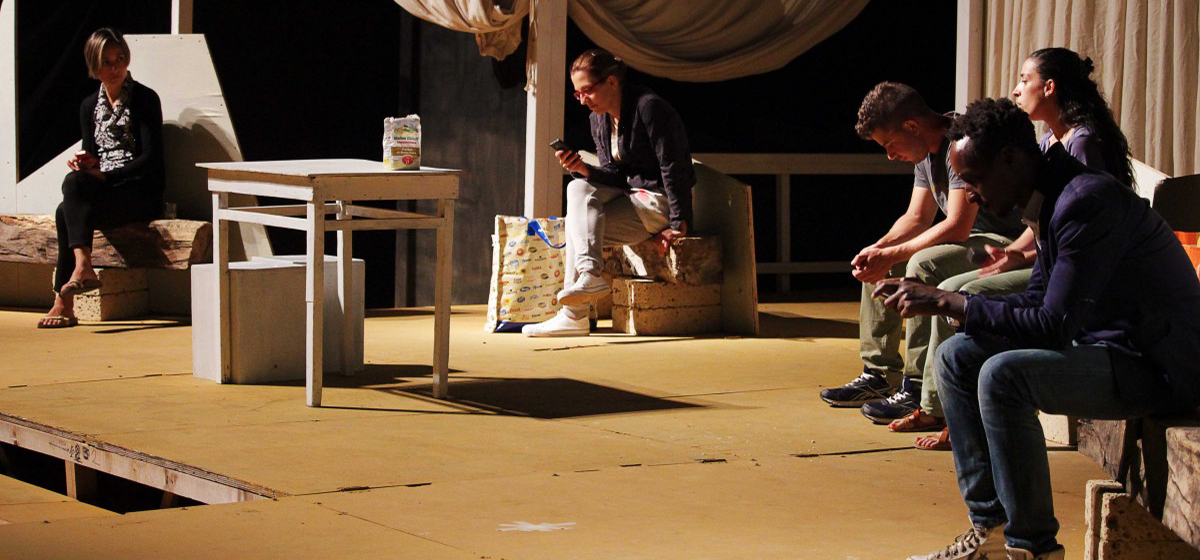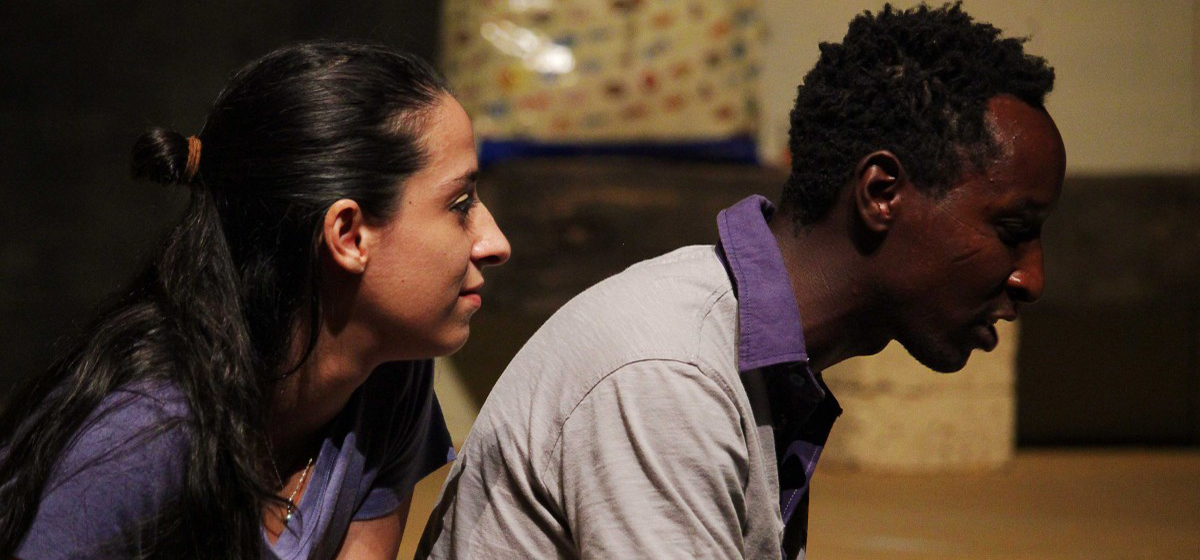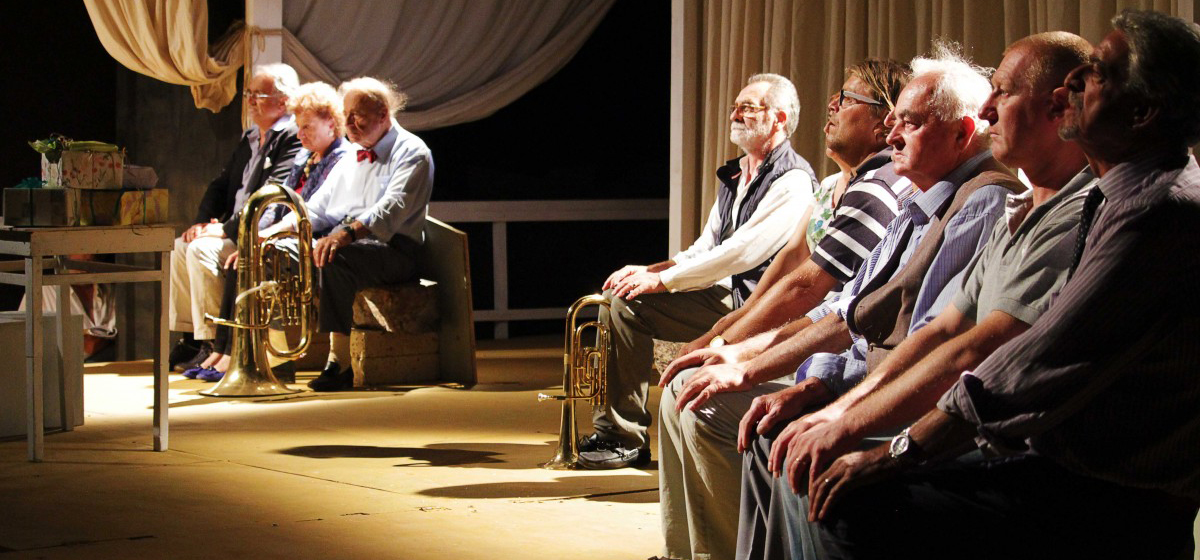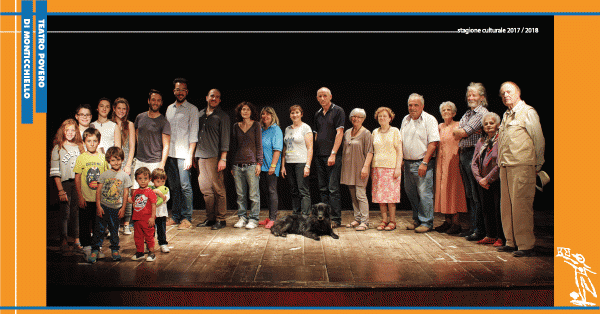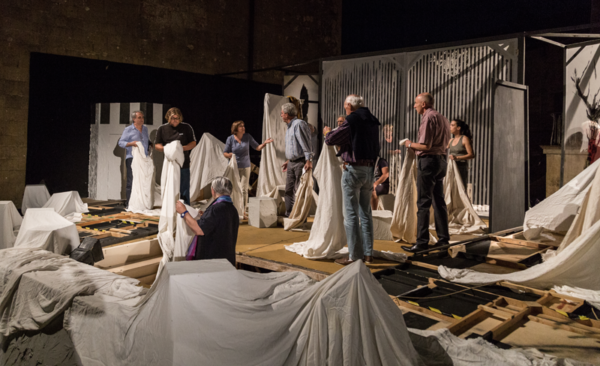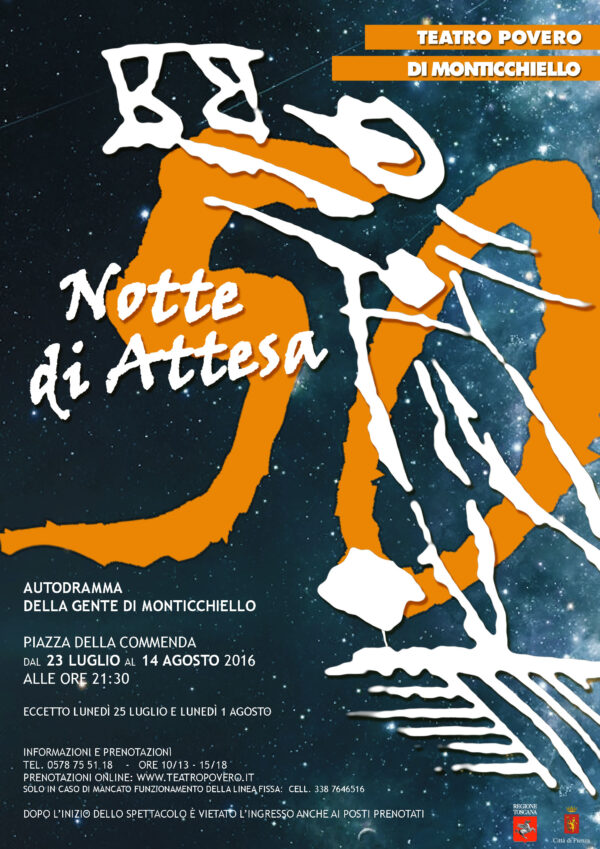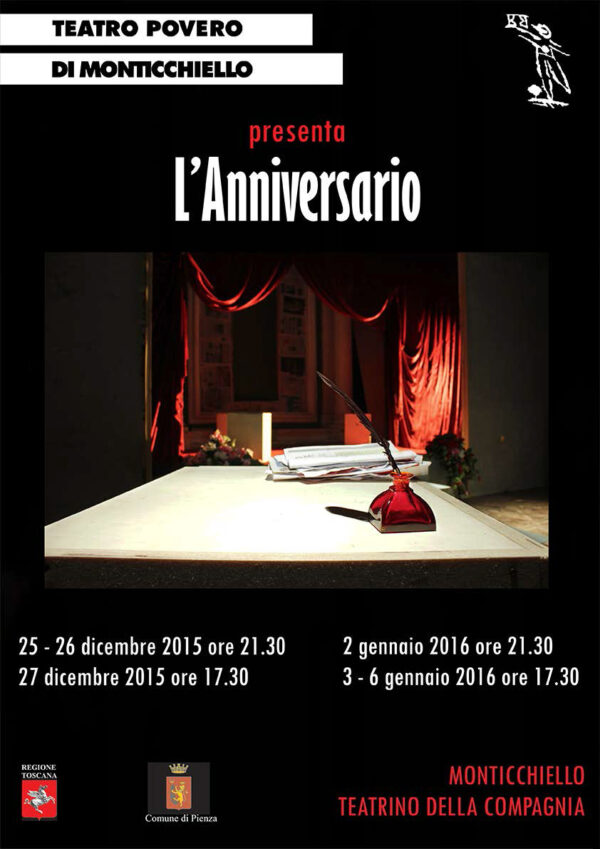What was felt to be most obviously ‘missing’ from the village of Monticchiello, in 2015, was opportunities for young people to make a life for themselves in the current economic climate. Families were seeing their sons and daughters emigrate from the village to find work elsewhere. But the migration was not all in one direction: here, as elsewhere in Europe, people were arriving from places where the situation was even worse, seeking opportunities here.
The fictional premise of this year’s autodramma was that a 20th birthday was to be celebrated for Gigino, the last person remaining in the village who would reach that age. Compared with reality, this was felt to be only a small exaggeration. Then a second source of tension was offered by reality itself: the village Post Office was to be permanently closed in Septamber 2015. This would produce a ‘missing village’ in another sense, depriving the community, especially its older inhabitants, of a crucial facility. This fact too was incorporated into the script, which explored all the attitudes and uncertainties which Monticchiellesi were feeling. Migrants from outside were represented by a young African student; but also by a more fantastic figure, an itinerant ‘Toymaker’ (Giocattolaio) whose identity was unclear, and who inspired strongly opposing views representing people’s different attitudes to immigrants. His artisan skills seemed to relate entirely to a lost world from the past.
In the end we learned that 20-year-old Gigino, unlike his sister and contemporaries, was not going to leave Monticchiello. Using his youthful IT skills, he had been helped by the Toymaker to invent something which would make him some money. This was a combination of skill and enterprise provided equally by the older and younger generations, Monticchiello’s past supporting its future. His invention was a Post Office which could be run from an ordinary home—once again the Teatro Povero was insisting on a generically hopeful ‘happy ending’, however implausible its details might be.


